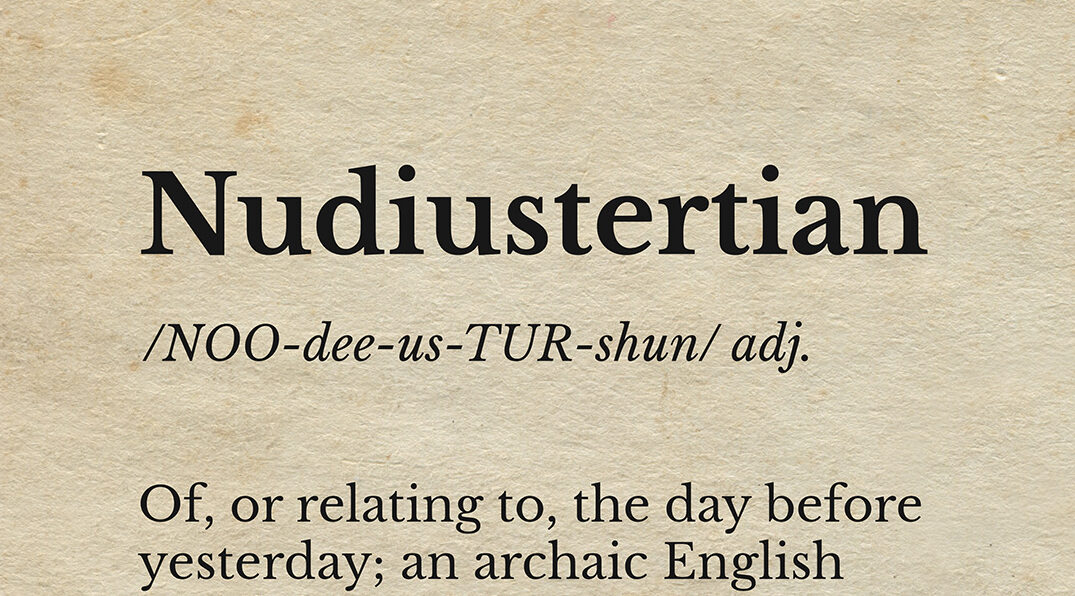Nudiusterian: The Word English Forgot
If you wanted to say “the day before yesterday,” English once had a single, tidy word for it. Nudiusterian. It feels like a relic hidden in the attic of the language, a reminder that even the most ordinary days can carry curious names.
How to say it
- Pronunciation (plain text): noo-dee-us-tur-shun
- Part of speech: adjective
- Example: “The nudiusterian meeting set the stage for today’s decision.”
What it means
Nudiusterian means “of or relating to the day before yesterday.” The common spelling in older texts is nudiustertian, built from Latin nudius tertius — literally “today is the third day,” counted backward to two days ago.
Where it came from
The word surfaces in the mid 1600s, when Nathaniel Ward wrote of “the nudiustertian fashion of the court.” At the time, it meant the very latest fad. English toyed with it for a moment, then set it aside. Dictionaries now mark it obsolete, and most speakers have never seen it.
The curious part
Here’s the wonder: many languages still keep a neat everyday word for this idea.
- German: vorgestern
- French: avant-hier
- Spanish: anteayer
English, ever the patchwork tongue, abandoned its single word and settled for the phrase “the day before yesterday.” The thought survived, but the compact tool faded.
What the word reveals
Nudiusterian lived in the same Latinate neighborhood as hesternal (yesterday) and hodiernal (today). They were precise but never caught on outside scholarly circles. English tends to favor clarity and flexibility, even if it means using more words. That preference shaped the language we use now.
A playful revival
Bringing a word like this back is not about pedantry. It is about delight. Language holds small, precise tools that shape how we notice time. Try nudiusterian once or twice this week. If it earns a smile, it has done its job. If not, it still nudged a little wonder into an ordinary Tuesday.
